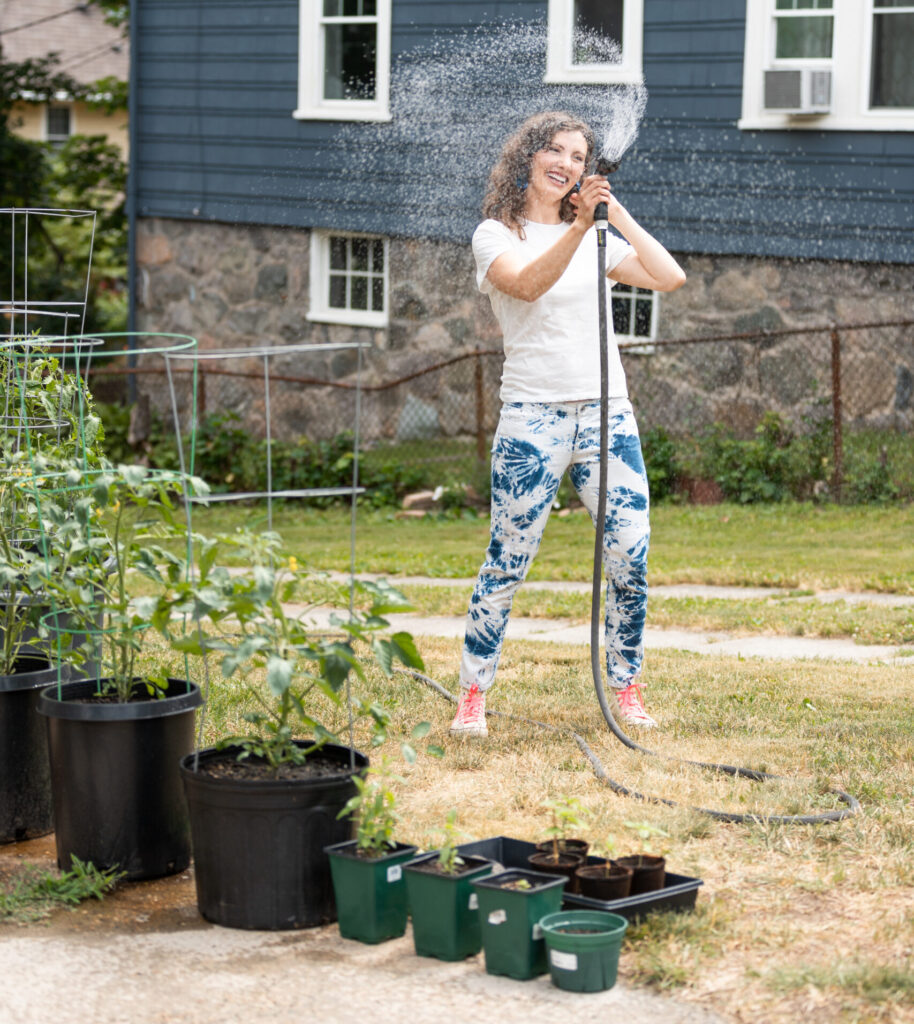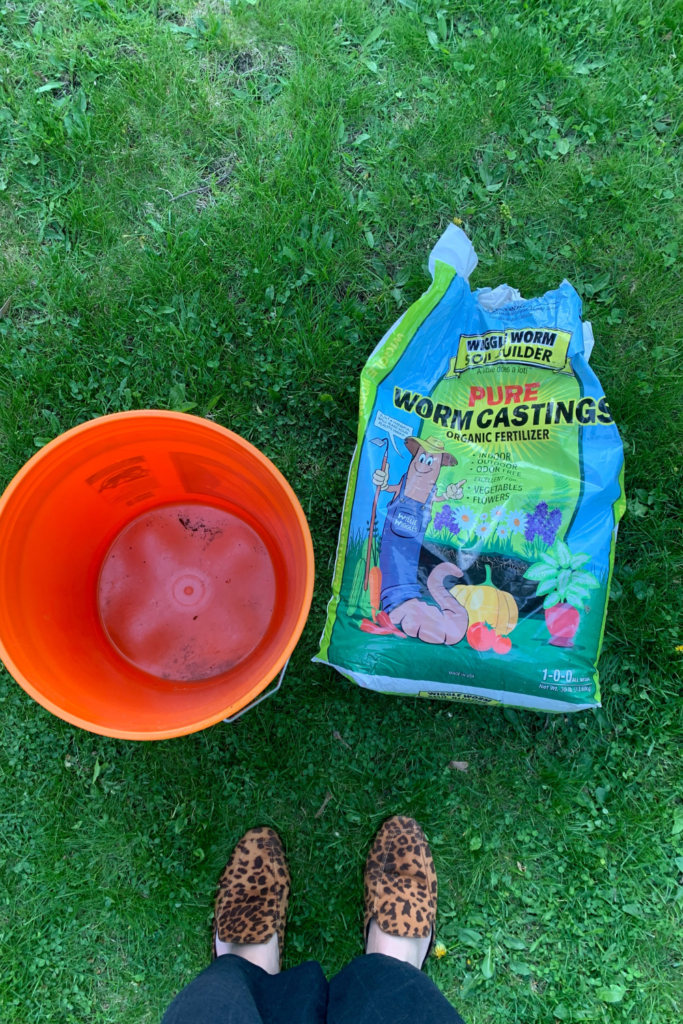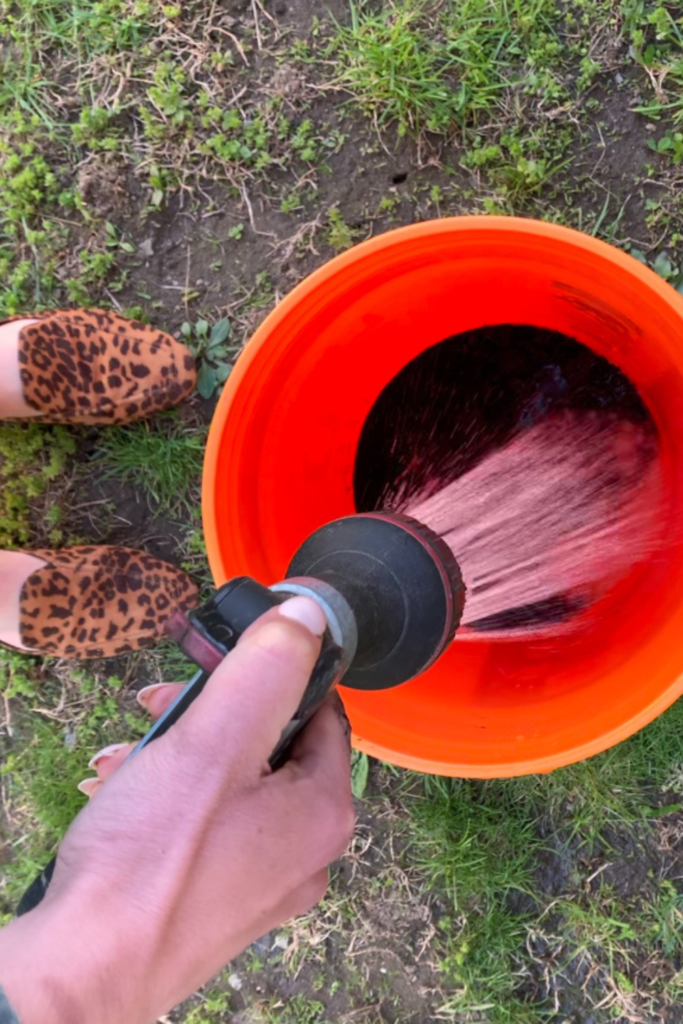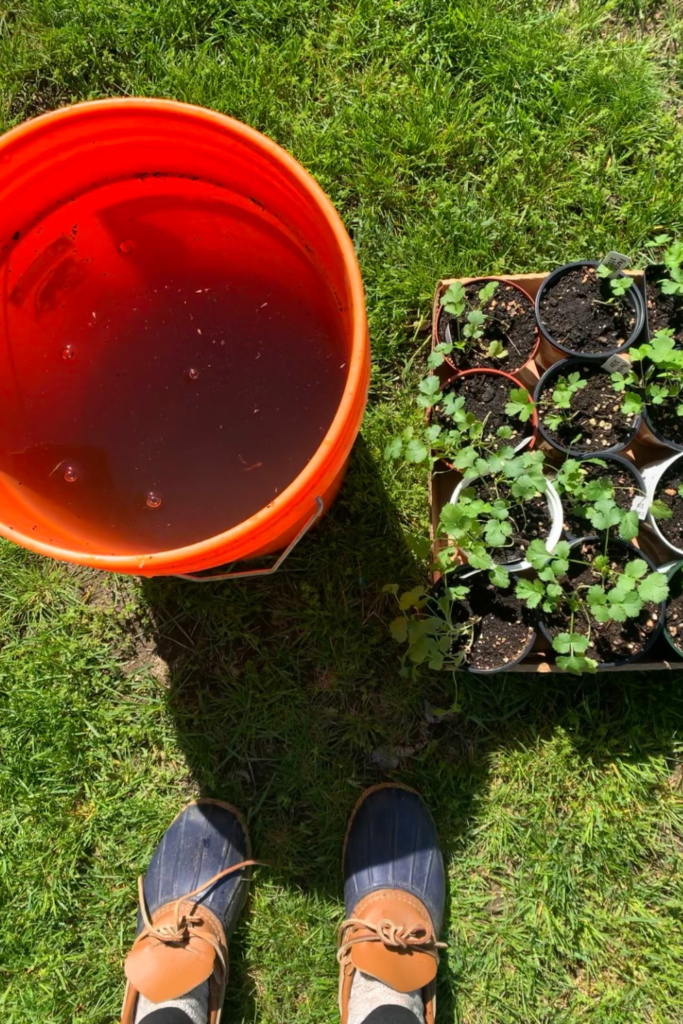This post may contain affiliate links, which means that I may receive a commission if you make a purchase using these links.
Compost tea is a nutritious brew that helps your garden thrive. Make compost tea the easy way with materials you may already have on hand.
There are a few garden projects that are so simple that I recommend them for every gardener–even beginners. Making compost tea (also called fertilizer tea) is one of those projects. It’s so simple and so rewarding–you really can’t mess it up!
Beginner and advanced gardeners alike will see the benefit of adding compost tea to your gardens.
I’ve been making fertilizer tea every spring for years now, and I’m always impressed with the boost in growth and productivity a feeding of compost tea provides to my gardens.
Hi, I’m Leslie!

My name is Leslie, and I’m the founder of PunkMed! On my blog, I and my team share my info, experiences, and recommendations in the areas of gardening, urban homesteading, and eco-friendly living. Our goal is to make it less overwhelming for you to live a fun and sustainable life!
In today’s post, I’m sharing my steps making fertilizer tea. These ideas come from my years of experience making compost tea using this super simple recipe!
Let’s get into it!
This post is all about making compost tea.
What is Compost Tea?
Compost tea is a nutritious brew for your plants made from water and your choice of organic material in various stages of decomposition.
Left at least overnight to “steep,” the ingredients in this brew further decompose, unlocking the nutrients within and making those nutrients available to your plants.
Benefits of Compost Tea
There are several benefits to using compost tea in your garden:
- Compost tea can replace chemical fertilizers. Fertilizer tea can act as a healthy, gentler replacement for chemical fertilizers in the garden.
- Compost tea delivers critical nutrients to plants. Fertilizer tea is a concentrated, but still gentle nutrient delivery system that can be fed to plants during critical times during their lifecycle.
- Compost tea contributes to the sustainability of your garden. Oftentimes, you can make compost tea with waste materials that may already have on hand. Furthermore, solid leftover from your batch of fertilizer tea can be added to sheet mulch or thrown in the compost pile.
Where to Use Compost Tea
Compost tea is a relatively gentle fertilizer, but different plants have different fertilizer needs. Be sure to research the needs of the individual plants before you go too wild with the fertilizer tea.
That being said, it’s pretty safe to use compost tea about once or twice in any garden bed or container garden with good drainage.
Do not use fertilizer tea in self-watering containers, as they do not drain and fertilizer can build up to harmful levels.
When to Use Compost Tea
There are two critical times during the plant lifecycle that I always recommend applying compost tea.
First, if you are starting seeds, I recommend feeding your seedlings as soon as they put out their first set of true leaves (i.e. the identifiable leaves of the adult plant, not the first set of baby cotyledon leaves.)
Second, I recommend applying fertilizer tea to plants that have been transplanted. This can mean seedlings from the nursery that are going into your garden beds, or the perennial that you’re moving to from one spot to another in your backyard. Adding compost tea at this critical time eases the stress of the move and supports the plant during the transition.
Compost Tea Materials

- 5-gallon bucket with a lid
- Water to fill
Choose one of the following organic materials: - 5 cups finished compost
- 2 cups worm castings
- 2 cups organic dry packaged fertilizer
- 5 cups aged horse or chicken manure (at least 6 months old)
- Enough weed or garden trimmings to nearly fill the bucket (make sure they have not gone to seed!)
- 2 ounces liquid seaweed extract or fish emulsion
How to Make Compost Tea
Steps to make fertilizer tea:

#1 Gather your materials. You’ll need one 5 gallon bucket and your chosen organic material (compost, worm castings, dry fertilizer, aged manure, etc.)
#2 Add your organic material to the bucket.

#3 Fill the bucket with water.
#4 Cover with lid to keep out bugs.
#5 Let it steep for about 24-48 hours, or at least overnight. I let mine steep in the garage for extra protection from curious creatures.

#6 Water your plants with this nutritious liquid!
Bonus: Any solids leftover from your batch of fertilizer tea can be added to sheet mulch or thrown in the compost pile.
This post was all about how to make compost tea.
